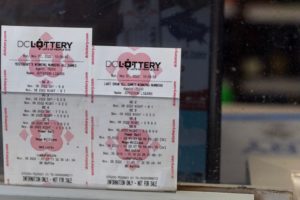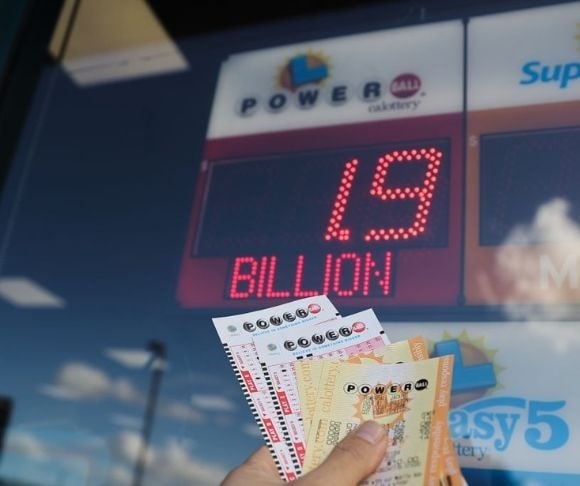The lottery is racist, according to CNN. For the first time in US history, the Powerball jackpot topped $2 billion, and the winning ticket was sold in California. For years, organizers have made these lotteries bigger and harder to win, adding more number combinations and raising the odds to nearly 1 in 300 million, up from 1 in 175 million in 2015. But are these government-run rackets nothing more than systemic racism? Yes, says the Most Trusted Name in News.
CNN: Lottery Is Racist
 The struggling cable news network reported on researchers who presented the case that lotteries across the United States routinely home in on impecunious communities far more than affluent areas of the nation. And, as CNN noted, these communities are “disproportionately made up of Black and Brown people.” In addition, it stated that locations selling lottery tickets are usually situated in low-income places nationwide, where the funds generated are allocated toward post-secondary institutions and school districts with higher incomes.
The struggling cable news network reported on researchers who presented the case that lotteries across the United States routinely home in on impecunious communities far more than affluent areas of the nation. And, as CNN noted, these communities are “disproportionately made up of Black and Brown people.” In addition, it stated that locations selling lottery tickets are usually situated in low-income places nationwide, where the funds generated are allocated toward post-secondary institutions and school districts with higher incomes.
“They’re hoping to pay their rent at the end of the month or pay an outstanding medical bill or put their kids through college or they just lost their job and they’re just trying to find a way to make ends meet,” Les Bernal, the national director of Stop Predatory Gambling, told the network. “And here you have what is a government program encouraging citizens to lose their money on rigged games.”
Ultimately, Americans are just handing over a few bucks for disappointment, although the euphoria of “what if?” might be worth a couple of dollars. That said, the problem with the entire system is not so much that the lottery is racist but that the whole scheme is nothing more than a numbers racket – and it goes beyond skin pigmentation.
The Economics of Lotteries

(Photo by Tayfun Coskun/Anadolu Agency via Getty Images)
In 2021, Americans spent more than $105 billion playing the lottery, from scratch tickets to quick picks. Can anyone blame the average person for putting down $2, $5, or $20 on a convenience store counter in the hope of winning $300 million? With a cost-of-living crisis unseen since David Letterman debuted his late-night talk show on NBC, millions of folks are trying to flee the inflationary pressures that have forced nearly two-thirds of the nation to live paycheck to paycheck. But while inflation could be an excellent excuse to play the lottery, individuals have always sought a quick way to get rich.
In the late 19th century, numbers games were popular in multiple cities throughout the United States. Also known as the mafia lottery, bettors would try to pick three digits to match what would be randomly drawn the next day. This racket was depicted in the terrific 1948 motion picture Force of Evil, starring legendary thespian John Garfield. The film was about a gangster who desired to control the numbers outfit in New York City, featuring scenes of all walks of life trying to earn the next big score.
Put simply, partaking in the lottery is a dreadful investment. Since the chances of winning a jackpot are slimmer than a supermodel from the 1990s, customers are merely paying for the right to fantasize. It is comparable to characters from Aldous Huxley’s Brave New World who swallow Soma pills to escape from the real world. “I’ll teach you; I’ll make you be free whether you want to or not,” John says in the book. Indeed, about 40% of impoverished folks purport that the lottery might be the best strategy to obtain a large sum of money.
CNN is correct in its reporting that poorer communities are more likely to see large numbers of gamblers. Sixty-one percent of the lowest fifth of socioeconomic status had the highest rates of lottery picking. However, the data also show that all races fall for the get-rich-quick scheme. According to a 2012 University of Buffalo study, which was published in the Journal of Gambling Studies, “blacks have lower rates of gambling on the lottery than whites,” and “black and Hispanic groups are not significantly different from the white reference group in number of days gambled on the lottery.”
A Government Enterprise

(Photo by Tasos Katopodis/Getty Images)
The government threw mobsters in jail for running lottery systems, only to take their ideas and get a cut of the loot. Politicians now have a monopoly on this grift. Of course, lawmakers are not forcing anyone to waste their hard-earned cash on long-shot tickets, but the nudging is always there because they need the funds to subsidize other areas of the economy.
Today, lottery winners will owe federal income taxes on any prize exceeding $600. And, if winners reside in jurisdictions with state income taxes, they will pay that, too. States rake in billions from those cheap lottery tickets. Last year, California, Florida, Massachusetts, and New York raised nearly $40 billion combined in lottery income. About a dozen states will typically garner more revenue from lotteries than corporate taxes. But these kinds of money-generating ventures help subsidize services taxpayers value, be it education or critical infrastructure.
Bad News
In the end, the lottery may have no upside, even for the winners. A 2017 report by the National Endowment for Financial Education highlighted that 70% of lottery winners end up broke, and one-third will declare bankruptcy. This unfathomable predicament is usually attributed to poor financial management, runaway spending, and toxic investments. Unfortunately, desperation will force poor Americans to give clerks the last remaining $5 in their wallets for a shot at winning the big one. But a 42-year-old divorcee from Varney, KY, will have better odds of coming across Rep. Alexandria Ocasio-Cortez (D-NY) reading Henry Hazlitt’s Economics in One Lesson in Trump Tower than posing for a photo holding an oversized check to the tune of $1.06 billion.




